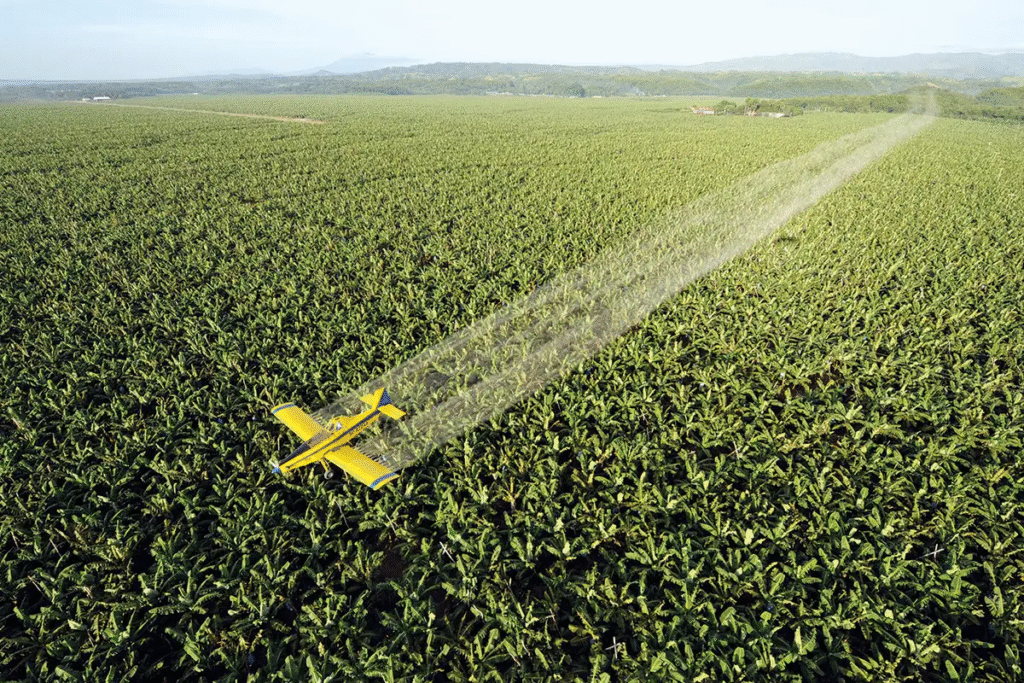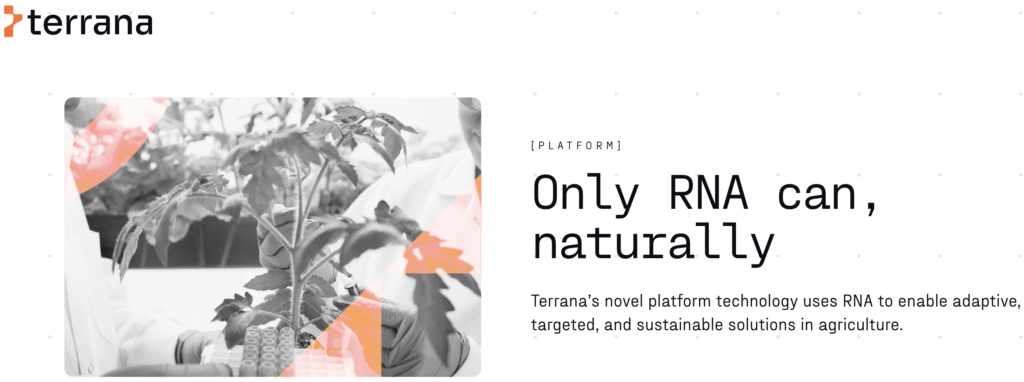Biotech’s next phase won’t look like Monsanto—it’ll look like software updates sprayed onto crops.
On July 1, 2025, Flagship Pioneering—the same venture firm that birthed Moderna—unveiled Terrana Biosciences, a $50 million RNA agriculture startup promising “real-time crop intelligence.”

Its secret weapon? Engineered RNA molecules sprayed onto plants to deliver synthetic “instructions.” No DNA editing. No visible modification. And, conveniently, no need for GMO labels.
But here’s the kicker: there’s no public USDA or EPA record showing these sprays have been approved.
Not one.

The company’s regulatory lead has a background in pesticide clearance. Yet, as of July 27, Terrana’s own statements confirm its RNA sprays are “not yet commercially available”—and no transparent regulatory filings exist.
So how is this not a secret approval pipeline?
Because RNA sprays fall into a regulatory limbo, a “biological” product that doesn’t trigger existing GMO or pesticide definitions—unless the EPA classifies it under RNAi pest controls like it did for GreenLight Biosciences.
And Terrana? It hasn’t submitted anything publicly.

From Genetic Control to Chemical Dependency
This isn’t genetic modification. It’s software-layer dependency.
- RNA sprays reprogram traits without changing the DNA.
- Each growing season requires a fresh RNA application.
- No spray = no pest resistance = crop failure.
Which means farmers are no longer buying seeds with traits—they’re leasing functionality by the acre, year to year.

This changes the entire structure of agriculture:
- Local seed saving? Obsolete.
- Input independence? Gone.
- Trait resilience? Now a subscription model.
And here’s the rub: none of it is labeled. None of it is disclosed. And none of it is debated.
The Fallout for Family Farmers
Let’s make this plain.
- You can’t sell raw milk without jumping through health department hoops.
- You can’t build a farmstand in Oregon without land use approval.
- But a $50M RNA startup backed by Flagship can spray synthetic molecules on corn—with no public oversight.
While the USDA tightens regulations on small farmers, it gives synthetic biotech firms full regulatory fog cover.
Who gets sued when sprayed RNA drifts, kills pollinators, or taints feed?
Not Terrana. Farmers do.
Pesticide in Name Only
Terrana’s RNA sprays won’t be regulated as food additives or gene therapies. They’re applying under FIFRA as “biopesticides”—a move that could grant them legal immunity if Section 453 of the House appropriations bill becomes law.
As researcher and policy analyst Breeauna Sagdal warned, this biotech pipeline bypasses drug safety review and shields companies from accountability—even when the product behaves more like a biologic than a bug spray.
The Misframed Science
A viral post on X cited a 2021 Nature Biotechnology study to suggest RNA from sprayed crops could enter the human body through food.
That’s not what the study shows.
The paper describes engineered “eToehold” RNA switches for controlling gene expression—tested in lab-based cell systems, not through dietary exposure.
The broader science on plant RNA uptake is inconclusive. Some studies detect trace RNA fragments across species, but most show no functional impact.
And Terrana’s sprays aren’t native RNAs. They’re synthetic, modular, and built to reprogram plant biology.
The risk isn’t natural RNA drift—it’s industrial biotech moving faster than labeling laws, safety testing, or public oversight.
“Non-GMO” Is the New Trojan Horse

Terrana’s sales pitch? They’re not editing your food—they’re upgrading it with RNA “protection” that slips into the plant and rewires its response. No gene edits. No labels. Just engineered molecules doing the job quietly from the inside.
But beneath the PR?
- RNA is invisible at the grocery store.
- Farmers have no way to test for contamination.
- Consumers have no right to know it was applied.
This isn’t transparency. It’s a technocratic control layer disguised as innovation.
Demand Preemptive Transparency Before They Spray
If RNA sprays aren’t pesticides or GMOs—what are they?
Until the EPA or USDA publicly classifies these molecules under an enforceable category, every farmer in the country should demand:
- Labeling on any food treated with synthetic RNA sprays
- Pre-market disclosure of all field trials and active molecules
- Indemnity protection for farmers exposed through runoff, seed contamination, or feed chains
This is about who controls the trait pipeline—and whether farmers will still have a say in the biology of their land.
They call it sustainable. We call it synthetic obedience—sprayed fresh every season.
Want beef that’s never touched a synthetic RNA spray? Find clean, local, Rancher Direct beef at BeefMaps.com before biotech drifts into your dinner.




0 Comments